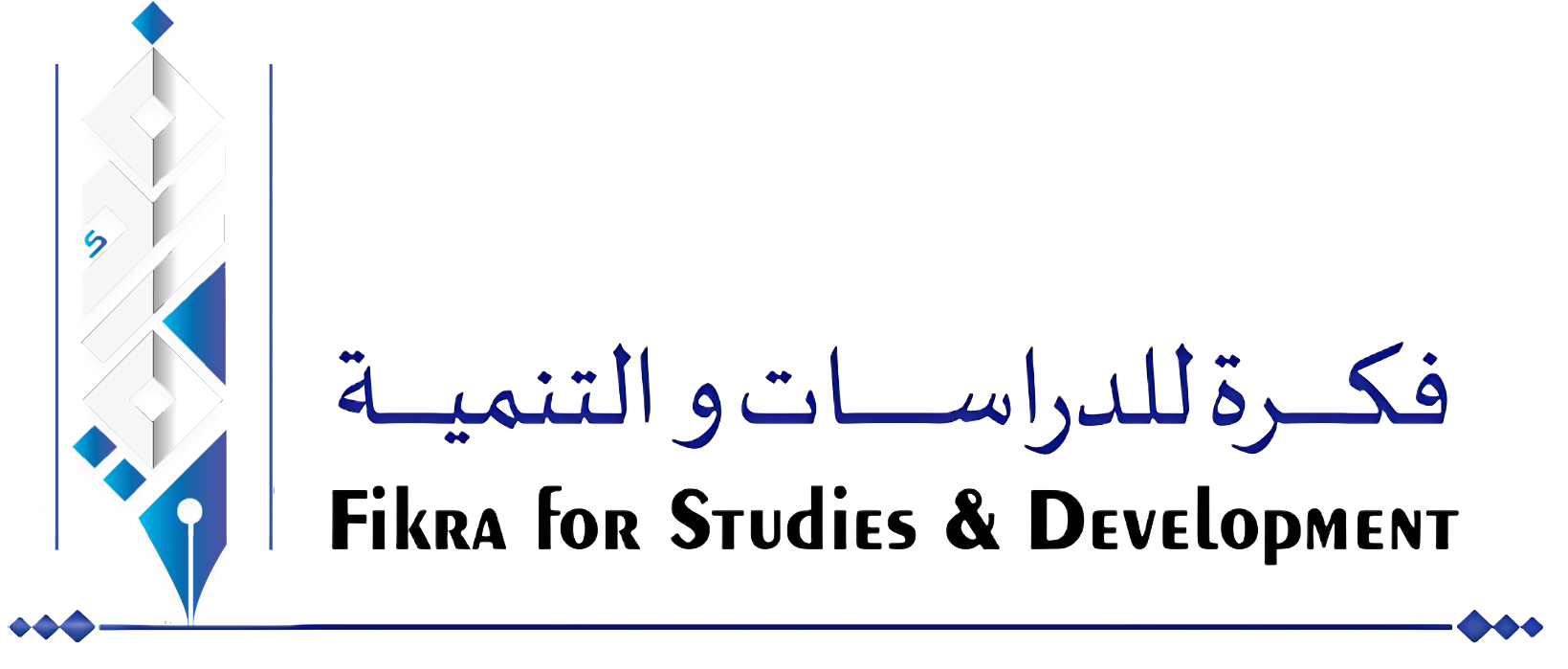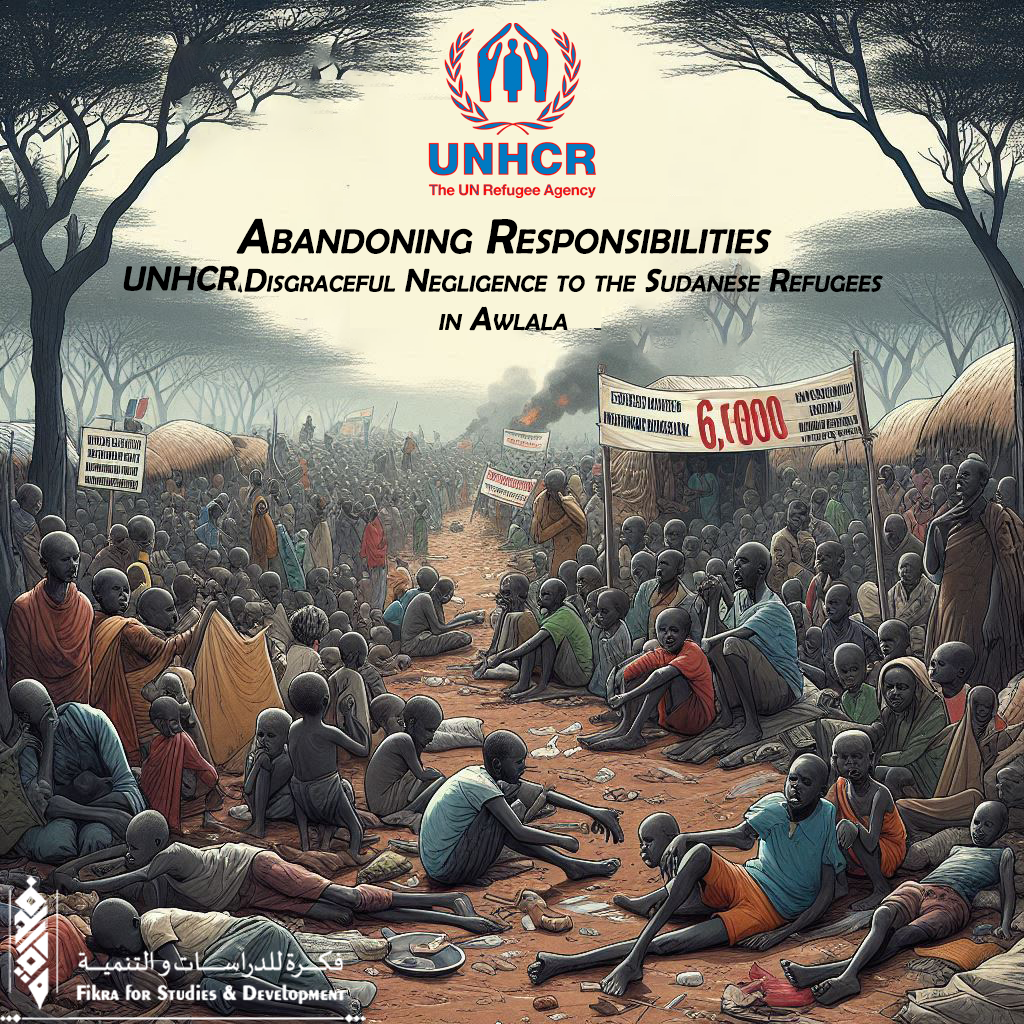Amgad Fareid Eltayeb Since May 1, 2024, almost 6,000 Sudanese refugees have been forced to take refuge in a small woodland in the Awlala district of Ethiopia’s Amhara region. They have been suffering for almost two and a half months and have not received any institutional humanitarian assistance or support. The Sudanese refugees were relocated to the Awlala and Kumer sites in the Amhara region after they fled the raging war within Sudan and entered Ethiopia. Nevertheless, the conditions of refugees in these camps were insecure as a result of a series of repetitive attacks from the local community. These attacks included burglaries, armed robbery, and direct physical assaults, as well as numerous reports of sexual harassment and rape. This led the refugees to depart the camp and seek a resolution to their issues at the offices of the United Nations High Commissioner for Refugees (UNHCR) in the city of Gondar. However, the Ethiopian authorities intercepted them enroute and prevented them from continuing the journey to Gondar. As a result, they were compelled to take refuge in a small bush area in the Awlala district of the Amhara region. A total of 6,080 Sudanese refugees are currently taking sanctuary in the wilderness of this bush area, with almost two-thirds of them being women and children. There are precisely 2,135 children, as well as a significant number of elderly people who are unable to travel long distances. Meanwhile, around 2,000 additional refugees remain in the Kumer Camp due to the challenging circumstances hindering their departure. Sudanese refugees issued numerous statements to address the appropriate authorities, particularly the United Nations High Commissioner for Refugees. They expressed their willingness to accept any feasible solution in order to resolve their situation and alleviate this distress. Their suggestions included relocating them outside the Ethiopian borders, transferring them to a safe location other than the camps where they were attacked, or even assisting them in securing their way back to Sudan, which would require passing through the unsafe areas in the Amhara region from which they originally fled. The UNHCR did not provide any assistance to the refugees confined in the Awlala woodland. The only source of assistance that these refugees received was a volunteer campaign, in which groups of Sudanese from around the globe organized to provide some support to their compatriots who were fleeing the hell of war and the suffering of homelessness and displacement. However, even these attempts face challenges: reaching this troubled region is difficult, and the current circumstances of the Sudanese war limit the supplies and support available to them. Instead of providing relief or remedies to the Sudanese refugees’ condition in Awlala, the UNHCR has only made two visits to the area since May 1st. UNHCR issued a statement full of inaccuracies about the number of refugees, claiming that it does not surpass 1,000, as if the figure makes a difference regarding their suffering or covers UNHCR’s failure to fulfill its mandate and responsibility towards them. UNHCR continued its unacceptable bureaucratic obstinacy, ignoring the humanitarian circumstances, ongoing suffering, and serious risks on the ground, insisting that refugees return to their initial camp before offering any solutions to the situation. The UNHCR defines its role and mission as “providing protection for people forced to flee their homes as well as stateless persons” in addition to providing “life-saving assistance during emergencies,” safeguard fundamental human rights” and “help find long-term solutions so they can find a safe place to call home.” This text serves as an introductory feature on the UNHCR website, providing a description of its duties. Refugees are not obligated to put themselves at risk by going back to places where they are not secure, particularly when there is documentation of prior exposure to hazards and violations in those areas. Instead, such conditions should serve as a greater motivation for the UNHCR to accelerate carrying out its tasks by providing the necessary assistance needed to grantee the protection, life-saving assistance and the fundamental human rights of those refugees. More explicitly, the 1951 Geneva Convention relating to the Status of Refugees and its 1967 Additional Protocol, which are the two basic legal documents that define the core of the work and duties of the UNHCR, detail the rights of refugees and the assistance and services that is to be provided to them. The High Commissioner is charged with the task of supervising international conventions providing for the protection of refugees as clearly stated in the Convention. The fundamental principle of UNHCR’s work is “ensuring the safety of refugees and preventing their return to perilous situations.” Not compelling them to return to such situations. However, UNHCR currently requires Sudanese refugees to return to these risky situations in order to provide them with any services or aid that address the crisis they are facing. UNHCR is not only failing its responsibilities, but it is also betraying its own fundamental values and reason for existence. Since April 2024, the Ethiopian government has not been entirely controlling the situation in the Amhara region. Violent confrontations erupted between the Ethiopian government army and the ethno-nationalist Amhara militia, known as the Fano militia, which became more influential during the Tigray conflict that commenced in November 2020. Amidst the war, Fano staunchly supported the Ethiopian army and played a pivotal role in impeding the Tigray Liberation Front’s progress towards Ethiopia’s capital, Addis Ababa. After the Ethiopian Prime Minister Abiy Ahmed’s government made the official decision to merge the armies as part of the peace agreement signed with the Tigray Liberation Front in Pretoria, South Africa on November 2, 2022, a new armed conflict broke out between the Ethiopian army and the Fano militias. The Fano militias refused to comply with the decision, arguing that they did not participate in the agreement and that the clause only applies to those who participated in and signed it. Fano contended that their stance was constitutional, as the Ethiopian federal constitution explicitly affirms that “every region possesses the prerogative to uphold particular armed units,” within the framework of the Ethnic Federalism system implemented by Meles Zenawi after the successful ousting of Mengistu Haile Mariam’s regime in 1991. Observers say that while this argument holds validity, it is not the primary cause of the Fano insurrection. The Ethiopian central government’s effort to disarm the militias in the Amhara region prior to completing the disarmament of the Tigray militias has raised concerns among the Fano group. They fear the potential for retaliatory attacks from the Tigrayans, with whom they fought alongside Abiy Ahmed in the recent conflict. On the other hand, government supporters justify this governmental effort as an attempt to reassure the Tigrayans and encourage them to give up their weapons. In summary, all these factors contributed to an explosion in the security situation in the Amhara region. It made Sudanese refugees fleeing from the ashes of the Sudanese war, which destroyed their country and displaced them from their homes, falling into the flames of war and armed conflict in a foreign country. Despite all of these circumstances, hazards and complications, UNHCR cites bureaucratic wrangling that has nothing to do with reality, foundational objectives or rules that govern its work to justify its failure to perform the roles assigned to it, particularly given the host Ethiopian government’s inability to control the security situation in the region. The traditional durable solutions provided by the UNHCR, according to international law, are summarized in three options: voluntary and sustainable repatriation; local integration; and resettlement to a third country. The asks of the Sudanese refugees, who completed their seventy-fifth day in an open jungle in the Awlala area, did not deviate from these three options. In fact, their conditions are getting worse as the conditions in the region worsen. Reports are emerging of armed groups kidnapping refugees and demanding a ransom for their release. Forty-eight refugees have been kidnapped until now. These ransoms reached approximately 300,000 Ethiopian birr, equivalent to 5,200 US dollars, for each kidnapped prisoner. The failure of the UNHCR and the international community as a whole to address the issues of Sudanese refugees is not limited to the refugee situation in Ethiopia alone. The UNHCR’s delay in registering the Sudanese refugees in Egypt has become a source of ridicule. The UNHCR is scheduling appointments for Sudanese refugees to meet with the Commission for initial registration, which can help them regularize their status in the host country, with dates approaching the middle of next year (2025), keeping them in illegal status without any sort of protection or support provided. Despite the Sudanese crisis, classified from an early stage as the largest displacement crisis around the world in our contemporary time (the number of those displaced from their homes is approximately 12 million citizens, compared to about 7.2 million from Syria, 6.4 million from Afghanistan, and 6 million from Ukraine), actual interest from the international community in addressing this crisis pales in comparison to its severity. There were no special treatment programs for Sudanese refugees, like those launched for other refugees in similar situations during our time. Nothing like the Regional Refugee and Resilience Plan (3RP) for Syrian refugees, which is sponsored and adopted by the United Nations (UN) through the United Nations Development Program (UNDP) and the UNHCR, nor the Syrian refugee resettlement initiative undertaken by the Canadian government or the Syrian Vulnerable Person Resettlement Programme, which was announced by the British government, or the Japanese Initiative for the Future of Syrian Refugees (JISR), or the similar plans announced by the governments of Germany, the United States, Austria, and the Netherlands in response to the humanitarian disaster in Syria. Likewise, we have not seen programs like the United for Ukraine program that was announced by the US government and began working in April 2022 to receive and resettle Ukrainian refugees, or any equivalent of what the British government has done since the outbreak of the Russian-Ukrainian war when it announced three plans for refugees from Ukraine: the Homes for Ukraine program, the Ukrainian family plan, and the extension plan for Ukraine, which granted Ukrainian refugees residence and work permits in Britain for a period of 3 years, with possible extension. Moreover, there is no Sudanese version of the temporary protection program announced by the European Union for Ukrainian citizens, which granted them legal residency rights until the year 2026. Examples of global initiatives to provide aid to refugees in similar special circumstances are many in the fields of education, health, shelter, and other needs that have found their way into UN charters and declarations and sustainable development goals, but what seems clear in the Sudanese case is that not all refugees are equal in the eyes of the international community. There is no dispute or controversy that despite the regional foreign interventions that have been fanning the flames of Sudan’s war and trying to benefit from it to serve their interests, the current Sudanese war crisis is a purely Sudanese crisis caused by Sudanese parties that are primarily responsible for this suffering of our people now. However, the international community’s commitments, which have knitted the fabric of international humanitarian law, are not amenable to selective implementation, and it is not acceptable to renege on the vows that humanity made in the aftermath of World War II. Furthermore, these commitments, of course, are not objects of charity, but rather rights and obligations to repay the debt of colonial exploitation witnessed in world history over many years, which discontinued the natural development of countries and societies in the Global South. The inaction in the face of the humanitarian crisis in Sudan is not limited to the UNHCR or the other UN agencies alone, but also to the entire international community, which, despite pledging conferences in Berlin and Paris, is still unable to cover the needs budget, with funding for humanitarian operations in Sudan reaching only 18% of the needed budget. In any case, the High Commissioner for Refugees, Mr. Filippo Grandi, whose mission, according to Article 1 of Chapter 1 (General Provisions) of the Statute of the United Nations High Commission for Refugees, is to provide international protection, under the auspices of the United Nations, to refugees who fall within the scope of the current Statute, is faced with proving that all refugees under his mandate are treated equally, and to demonstrate that refugees are receiving the necessary support and protection stipulated by international humanitarian law and his agency’s mandate, beginning with those who have been suffering in Awlala for more than two and a half months. Having previously worked in Sudan, he may recall that Sudan and its people have always been welcoming to refugees from all across the region and the world and Sudanese people do deserve the same treatment in their time of need. |


